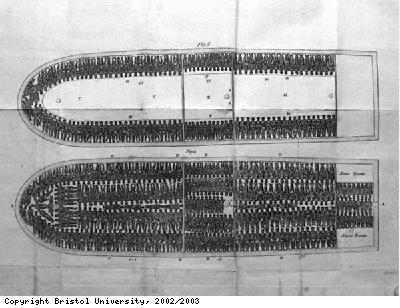John Pinney
The abolition movement
‘Abolition’ was the name given to the campaign to end the trade in slaves. It was gaining followers in Great Britain. Its aim was to end the trade in slaves from Africa to the plantations of the Caribbean and America. The Quakers, a religious group, had banned slave trading amongst their followers as early as 1760. John Wesley, the founder of the Methodist Church, published his ‘Thoughts Upon Slavery’ in 1774. This was a version of the sermons he had preached in Bristol, against the slave trade and slavery. The debate about the abolition of the slave trade was becoming intense.
Whilst many people supported such a ban, there were also many opposed to it. The opposition included plantation owners, slave traders, and many businessmen involved in supplying the slave trade. In 1775 the House of Commons appointed a committee to investigate the British slave trade. The plantation owners were alarmed by the regular reports of the imminent abolition of the slave trade. In 1788 a committee of the Privy Council was set up to investigate the slave trade.This was a very influential committee and there were more rumours that the trade was about to be ended.Pinney wrote about it to his estate manager in Nevis. ‘The present alarming crisis, respecting the abolition of the slave trade, operates so strongly on my mind that I am resolved to contract – all my concerns in the West Indies’. However, the threat of abolition made it difficult to sell up, and the Pinneys still had property and slaves on Nevis when slavery itself was abolished in 1834.

 Links with Nevis
Links with Nevis Mountravers
Mountravers Pero
Pero Back to Bristol
Back to Bristol The abolition movement
The abolition movement Hard times
Hard times Treatment of slaves
Treatment of slaves Life as a plantation owner
Life as a plantation owner The young Pinney
The young Pinney Charles Pinney
Charles Pinney

